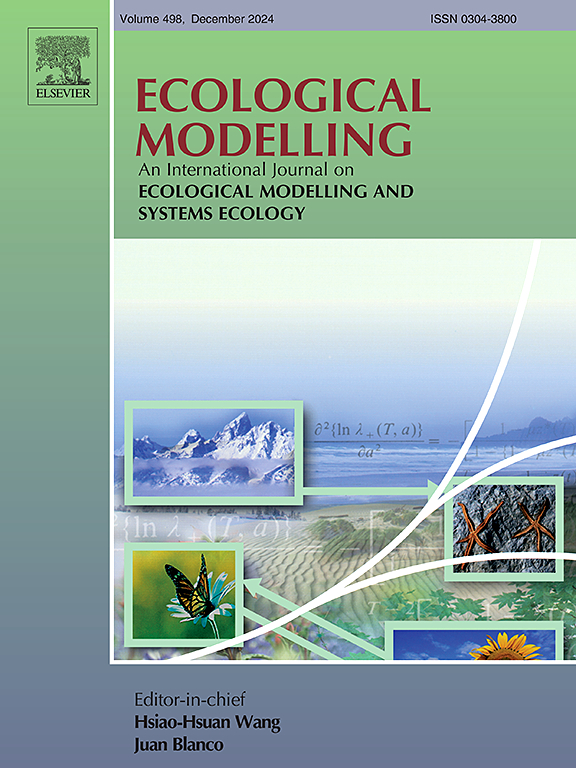人工智能何时取代生态建模中基于过程的模型?
IF 2.6
3区 环境科学与生态学
Q2 ECOLOGY
引用次数: 0
摘要
16 年前,"生态建模 "的创始人斯文-约根森(Sven Jørgensen)写道,人工神经网络在大多数情况下非常有用,但不能取代基于保护原则的生物地球化学模型。文献研究表明,在生态建模中,没有迹象表明人工神经网络正在取代任何基于过程的模型,尽管最近在开发利用神经网络求解微分方程的方法方面所做的努力,使基于过程的模型能够转化为神经网络而不失其理论的严密性。看来,我们需要一个精心策划的研究计划,以促进将现有的基于过程的模型转化为神经网络,从而利用大数据革命带来的机遇。本文章由计算机程序翻译,如有差异,请以英文原文为准。
When does artificial intelligence replace process-based models in ecological modelling?
Sixteen years ago, Sven Jørgensen, a founder of Ecological Modelling, wrote that artificial neural networks could be very useful in most cases but cannot replace biogeochemical models based on conservation principles. The literature study shows no sign that artificial neural networks are replacing any process-based models in ecological modelling, although the recent efforts in developing the methods for solving differential equations by using neural networks enable turning the process-based models into neural networks without loss of their theoretical rigor. It seems that a well-orchestrated research program is needed to promote turning existing process-based models into neural networks aimed at taking advantage of opportunities offered by the big data revolution.
求助全文
通过发布文献求助,成功后即可免费获取论文全文。
去求助
来源期刊

Ecological Modelling
环境科学-生态学
CiteScore
5.60
自引率
6.50%
发文量
259
审稿时长
69 days
期刊介绍:
The journal is concerned with the use of mathematical models and systems analysis for the description of ecological processes and for the sustainable management of resources. Human activity and well-being are dependent on and integrated with the functioning of ecosystems and the services they provide. We aim to understand these basic ecosystem functions using mathematical and conceptual modelling, systems analysis, thermodynamics, computer simulations, and ecological theory. This leads to a preference for process-based models embedded in theory with explicit causative agents as opposed to strictly statistical or correlative descriptions. These modelling methods can be applied to a wide spectrum of issues ranging from basic ecology to human ecology to socio-ecological systems. The journal welcomes research articles, short communications, review articles, letters to the editor, book reviews, and other communications. The journal also supports the activities of the [International Society of Ecological Modelling (ISEM)](http://www.isemna.org/).
 求助内容:
求助内容: 应助结果提醒方式:
应助结果提醒方式:


